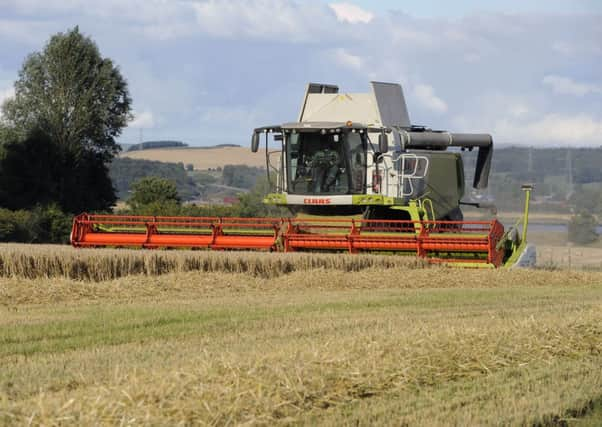Three-crop rule threatens Scots ‘havoc’


That was the message from NFU Scotland yesterday as it threw its weight behind a campaign to have the crop diversification rules changed.
Claiming that the move – which requires at least three different crop types to be grown on most commercial arable farms – was “nonsensical” in the Scottish situation, the union said it was giving its full backing to plans by the UK Department of the Environment, Food and Rural Affairs (Defra) to tackle Europe over this damaging element of the new CAP.
Advertisement
Hide AdAdvertisement
Hide AdThe union re-stated its belief that the move would force growers away from being market-focussed and see them plant other crops simply to secure the greening element of farm support.
In the wake of its recent meeting with Defra Secretary of State Owen Paterson in Edinburgh, the union said that it had submitted a briefing on how the requirements would hit producers in Scotland to the minister to support his effort for this greening measure to be reviewed.
“A primary reason for the three crop rule’s inclusion in the greening requirements of the reform package was as a means of combating monoculture – an issue in some regions of the EU – but certainly not Scotland,” said NFU Scotland president Nigel Miller.
“We have consistently highlighted the damage that crop diversification requirements could wreak on arable production here in Scotland and we fully support the secretary of state in his efforts to have this nonsensical element of CAP reform reviewed at the earliest opportunity.
“For Scotland, weather pressures at harvest and during sowing periods are another factor which often dictates what crops our growers can produce. In the northern and more upland parts of Scotland, crop choice is limited, with spring barley at the core of production, underpinning our world-famous whisky industry and for European rules to force them into growing other crops is a nonsense.”
Meanwhile, at a private meeting with Scottish rural affairs cabinet secretary Richard Lochhead in Inverurie, the union set down a marker that Scotland must push for arable and grassland support payments to move towards parity with those being achieved in other parts of the UK.
Speaking after the event, Miller said that the new scheme had to avoid “damaging” redistribution of support both within areas and between sectors. While he emphasised that it was paramount that some means of rewarding productivity in the rough grazing areas was found, such moves should not be at the expense of other sectors.
He stressed that any outcome should not “drag new money into the hills” from lowground regions where budgets were already facing cuts.
Lochhead said:“I have some difficult decisions to make, but my discussions with industry have been very constructive.”